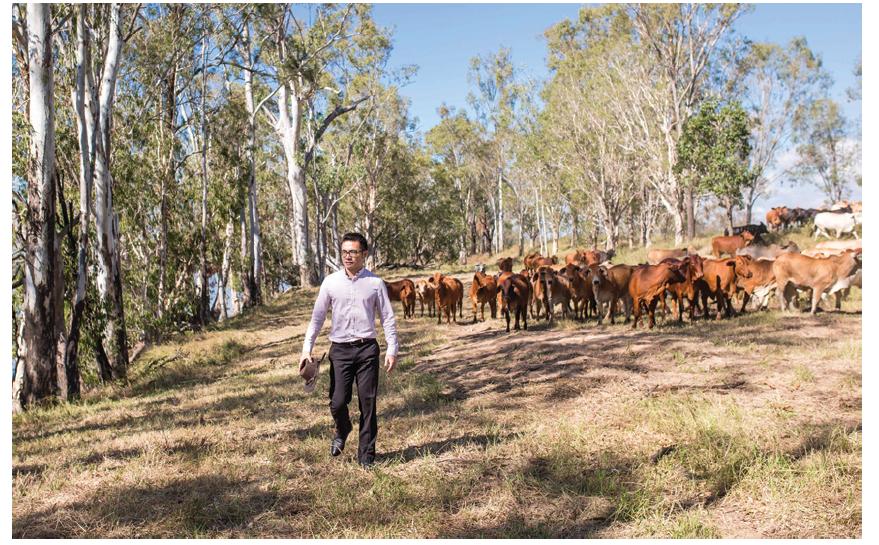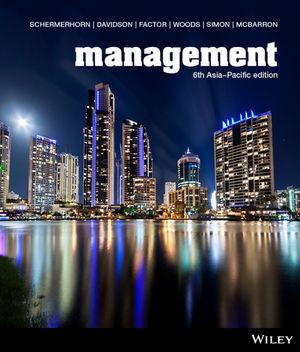Australia has robust mining and farming industries and Chinas attempts to buy mines, farms and blue chip
Question:
Australia has robust mining and farming industries and China’s attempts to buy mines, farms and blue chip real estate, particularly in Sydney and Melbourne, has troubled many Australians. A Daymark monitoring survey found that 41 per cent of Australians were uneasy about Chinese direct investment in agriculture and commercial real estate. One of the concerns voiced by federal Member of Parliament Bob Katter is that the Chinese are not really investing, ‘they’re not opening mines or building dams or anything of that nature, they’re just buying the asset that is there. So it’s not investment, it’s selling your country off’.
The Chinese are looking to secure a food supply for their burgeoning population, but questions are being raised about why the Australian Government is not doing the same for future Australian generations, allowing land to be seized by the banks from Australian farmers and sold to the Chinese.
Also of concern is that Chinese demand for commercial and residential properties, particularly in Sydney and Melbourne, is swelling house prices as the cost of an apartment in Beijing can be the same as a small house in Melbourne.
Additional concerns were raised about the leasing of the Port of Darwin to a Chinese company because there is a strong US and Australian military presence in that city.
The purchase of 43 New South Wales farms for coal exploration for A$213 million also caused alarm.
New Zealand is not exempt from this trend, with a Chinese property developer winning approval in 2012 to buy 16 farms for the purposes of exporting dairy products to Asia.
Lastly, the Electrical Trades Union feared that the Free Trade Agreement signed by Australia and China in June 2015 would mean the loss of Australian jobs to temporary 457 Visa Chinese workers on building sites. The Union was especially bothered by what it ‘called a “secretive side deal” made by the federal government to remove China from a list of nations where skills tests are mandatory before obtaining a skilled migrant visa’. However, regulation was put in place that will ensure Chinese workers have the right skills to work on Australian construction sites and that foreign workers’ salaries are benchmarked against those of local workers, reducing any incentive to bring a worker who could be paid less than an Australian into the country.
It may be the case that many of the concerns are being overstated. Firstly, China is now Australia’s major trading partner, as will be seen in this chapter. It imports almost twice as much from Australia in dollar terms than it exports to it. Verrender points out that the Australia–China Free Trade Agreement is mutually beneficial because it gives Australian businesses improved access to a huge market.
Secondly, by mid‐2013, 87.5 per cent of farmland was in fact Australian, not foreign, owned.11 Thirdly, overseas companies will invest in Australia and develop rural land in a country where the plight of so many drought stricken farmers is sometimes ignored by government. Rodney Bell, a property lawyer at McCullogh Robertson, believes that astute Chinese investors will employ experienced local managers, thus increasing employment opportunities.
Furthermore, the Foreign Investment Review Board introduced a tougher monitoring system on 1 December 2015: ‘the Turnbull Government’s robust new foreign investment regime provid[es] stronger enforcement and a better resourced system with clearer rules for foreign investors . . . The Government welcomes foreign investment that is not contrary to our national interest. Without foreign investment, production, employment and income would all be lower. But it is important that foreign investment is appropriately monitored to ensure that it benefits all Australians’, Treasurer Scott Morrison said. A month earlier, Australia had blocked the sale of the country’s largest landowner, private farming group S. Kidman and Co., to foreign investors, saying ‘an agricultural area the size of South Korea should remain in Australian hands’.
QUESTIONS
1. What form of international business strategy has been used by China to acquire Australian farms, mines and real estate? What forms of international business do you think are most advantageous for Australia?
2. List the advantages and disadvantages of Chinese investment in Australia.
Step by Step Answer:

Management
ISBN: 9780730329534
6th Asia Pacific Edition
Authors: Schermerhorn, John, Davidson, Paul, Factor, Aharon, Woods, Peter, Simon, Alan, McBarron, Ellen





